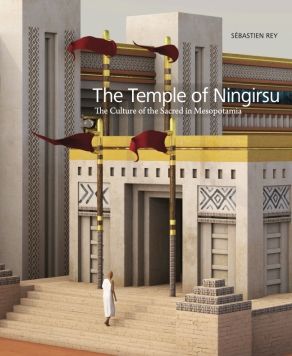Between 2016 and 2022, a team from the British Museum conducted excavations in the ancient Sumerian city of Girsu, the sacred center of the state of Lagash. On an archaeological mound referred to as the Mound of the Palace, or Tell A, they discovered the ground plan of the fabulous Temple of Ningirsu, built by the ruler Gudea circa 2125 BCE. Deep in the heart of the mound, the excavators also exposed the remains of a series of older Sumerian shrines dating back to Early Dynastic times (2900-2350 BCE).
The magnificent remains of Sumerian Girsu were first investigated by groups of French archaeologists between 1877 and 1933. Digging at great speed and using the industrial-scale methods characteristic of their era, the French pioneers unearthed extraordinary buildings and treasures, but they also left behind an unhappy legacy of confusion and gaps in the archaeological record. This two-volume study not only presents the new results of the British Museum team; it also reconsiders and recontextualizes the French reports to produce an indispensable history of the sacred complexes in Girsu over a period of nearly three thousand years. With full-color reconstructions of the principal buildings and installations, as well as many redrawn plans and sections, this lucidly written study reexamines the history of the exceptionally complete series of archaeological structures built on Tell K and Tell A from the beginning of the third millennium BCE to the fourth and third centuries BCE.












